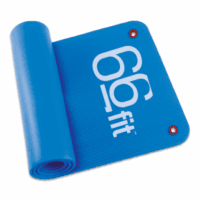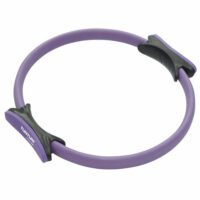Musculoskeletal Physiotherapists
Article by Zoe Russell

Musculoskeletal Physiotherapy
What is Musculoskeletal Physiotherapy?
Musculoskeletal physiotherapy focuses on diagnosing, treating, and preventing conditions that affect the muscles, bones, joints, ligaments, and tendons. This specialised branch of physiotherapy is essential for individuals dealing with injuries, chronic pain, or reduced physical function. Musculoskeletal physiotherapists employ a range of techniques, including manual therapy, therapeutic exercises, joint mobilisation, and electrotherapy, to alleviate pain, restore mobility, and enhance overall function.
Why is Musculoskeletal Physiotherapy Important?
Musculoskeletal issues can significantly impact your quality of life, making everyday tasks challenging. Whether you’re recovering from a sports injury, surgery, or managing chronic pain, musculoskeletal physiotherapy provides a structured approach to recovery. By addressing the root cause of the problem, physiotherapists can help you regain your strength, flexibility, and ability to perform daily activities.
How Does Musculoskeletal Physiotherapy Work?
Musculoskeletal physiotherapists begin with a thorough assessment to understand your condition. This process includes a detailed examination of your physical capabilities, medical history, and the specific symptoms you are experiencing. Based on this assessment, a personalised treatment plan is developed, incorporating techniques like manual therapy to relieve pain, exercises to strengthen muscles, and joint mobilisation to improve movement.
What Conditions Can Musculoskeletal Physiotherapy Treat?
Musculoskeletal physiotherapy is effective in treating a wide range of conditions, including but not limited to:
- Sports injuries (e.g., sprains, strains)
- Post-operative rehabilitation (e.g., knee or hip surgery)
- Chronic pain conditions (e.g., arthritis, back pain)
- Acute injuries (e.g., fractures, dislocations)
- Tendinopathy and ligament injuries
Each treatment plan is tailored to the individual, ensuring that specific needs are met.

Musculoskeletal Physiotherapy FAQs
- Why choose musculoskeletal physiotherapy?
- Musculoskeletal physiotherapy provides targeted treatment for a variety of conditions, helping you recover faster and prevent future injuries.
- How long does it take to see results?
- The time to see results varies depending on the condition, but most patients notice improvements within a few sessions.
- Who should consider musculoskeletal physiotherapy?
- Anyone with muscle, bone, joint, or tendon issues can benefit, whether it’s due to injury, surgery, or chronic pain.
- Where can I find a qualified musculoskeletal physiotherapist?
- Search for certified physiotherapists in your area through professional associations or healthcare providers.
- When should I start physiotherapy after an injury?
- Early intervention is key; starting physiotherapy as soon as possible after an injury can speed up recovery.
- What types of treatments are used?
- Treatments include manual therapy, exercises, joint mobilisation, and sometimes electrotherapy.
- Why is exercise important in physiotherapy?
- Exercises help to strengthen muscles, improve flexibility, and support long-term recovery.
- How is musculoskeletal physiotherapy different from other types of physiotherapy?
- It specifically targets the musculoskeletal system, making it ideal for treating injuries and conditions related to muscles, bones, and joints.
- What should I expect during a session?
- Sessions typically involve a combination of assessment, hands-on treatment, and guided exercises.
- How often should I attend physiotherapy sessions?
- Frequency depends on your condition; your physiotherapist will recommend a schedule based on your needs.
What to Do?
If you’re experiencing pain or mobility issues related to your muscles, bones, joints, or tendons, musculoskeletal physiotherapy offers effective solutions. It’s important to seek professional advice from a physiotherapist who can provide a tailored treatment plan to help you recover and regain your quality of life.
For tailored advice and effective treatment plans, book an appointment with your local musculoskeletal physiotherapist today. They can guide you through a comprehensive recovery plan that’s specific to your condition.
Rochedale - Call 38410277
Book Online: RochedaleSalisbury - Call 32751044
Book Online: SalisburySandgate - Call 32691122
Book Online: SandgatePhysiotherapists
Related Articles
- Physiotherapy for Sports Injuries
- Discover how sports injuries are treated with physiotherapy.
- Post-Operative Rehabilitation
- Learn about the role of physiotherapy in post-surgery recovery.
- Chronic Pain Management
- Explore physiotherapy options for managing chronic pain conditions.
- Manual Therapy Techniques
- Understand the different manual therapy techniques used in physiotherapy.
- Therapeutic Exercise Programs
- Get insights into therapeutic exercises that support recovery.
- Joint Mobilisation in Physiotherapy
- Read about how joint mobilisation can improve your range of motion.
- Physiotherapy and Arthritis
- Find out how physiotherapy can help manage arthritis symptoms.
- Back Pain Relief with Physiotherapy
- Learn strategies to relieve back pain through physiotherapy.
- Electrotherapy in Physiotherapy
- Discover how electrotherapy can enhance your physiotherapy treatment.
- Preventing Re-Injury with Physiotherapy
- Understand how physiotherapy can help prevent future injuries.
- Musculoskeletal Physiotherapy: An Overview
- This article explains the key components and benefits of musculoskeletal physiotherapy.
- The Role of Physiotherapy in Musculoskeletal Health
- Explore how physiotherapy contributes to managing musculoskeletal conditions.
- New Advances in Musculoskeletal Physiotherapy
- Read about the latest research and advancements in musculoskeletal physiotherapy.



























































































